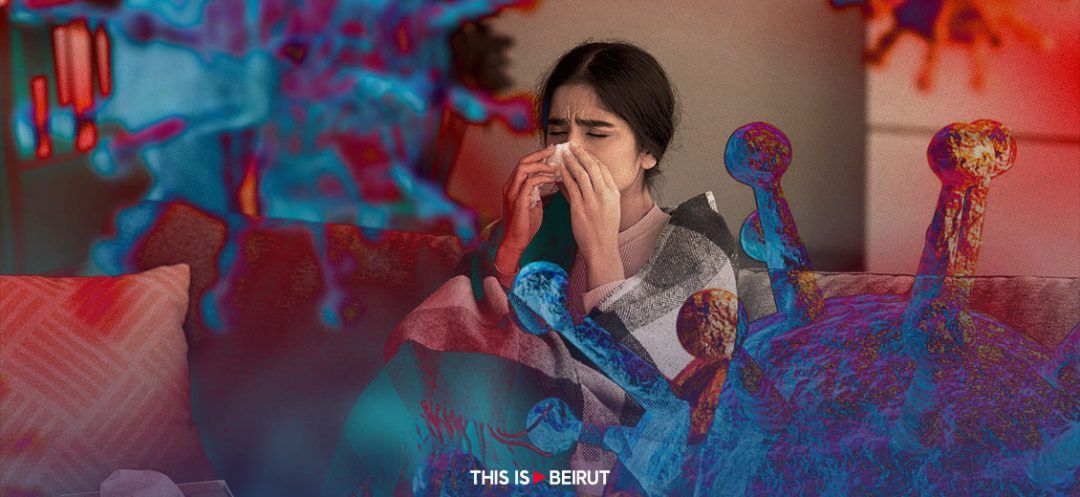
According to several specialists, the reported flu cases in Lebanon are not more numerous or more severe than usual.
In the waiting room of an eye doctor’s office, a woman blows her nose loudly. She throws her tissue into an already cluttered bin, disinfects her hands, wipes her eyes, adjusts her mask and remarks to the waiting patients, "I would have preferred the flu to H1N1!"
What this lady, like a vast majority of the population, is unaware of, is that the A(H1N1) virus is one of multiple influenza viruses. Since its re-emergence in 2009, it has become the one that circulates the most during the cold season, alongside the A(H3N2) virus and two other strains of type B virus (Victoria and Yamagata). These are the four strains contained in the influenza vaccine, administered each year before the start of the cold season.
It's worth noting that specialists distinguish two types of influenza viruses in humans: type A viruses that cause pandemics, as was the case with H1N1 in 2009, and type B viruses, which are less virulent.
"The number of flu cases is not higher than usual," assert two specialists under condition of anonymity. "The figures are in line with the season. It's the symptoms that are bothersome, but the disease is not more severe, at least in people without co-morbidities," they specify.
Influenza primarily manifests as fever, a runny nose, a sore throat and/or head and muscle and joint pain. "Generally, these symptoms disappear a week after their appearance," an infectious diseases specialist notes. However, in people with co-morbidities, such as diabetes, hypertension, renal insufficiency, immune deficiency or respiratory or cardiac diseases, symptoms can worsen and may lead to hospitalization.
According to the World Health Organization (WHO), nearly one billion cases of influenza are reported worldwide each year, including three to five million severe cases requiring hospitalization. Some 290,000 to 650,000 people die each year from seasonal influenza, UN counts show.
Prevention
Vaccination is the only effective way to prevent the flu. It is generally administered in September and October, especially to at-risk individuals, i.e., those with co-morbidities, children, pregnant women and people over 50. The Centers for Disease Control and Prevention (CDC) recommends influenza vaccination for the entire population, regardless of age.
"It is also possible to get vaccinated even in January," note the specialists, as the flu season sometimes starts late. Moreover, it can possibly protect against strains that have not yet reached the country. Specialists point out in this regard that the vaccine protects against the strains it contains, which are usually the most virulent. Therefore, even if vaccinated, it is still possible to catch the flu.
On a personal level, precautions include washing hands frequently, especially after coughing or sneezing, sneezing into the elbow, avoiding kissing someone if you are sick and wearing a mask if you have the flu to avoid transmitting viruses to others or if you are at risk.
Read more




Comments